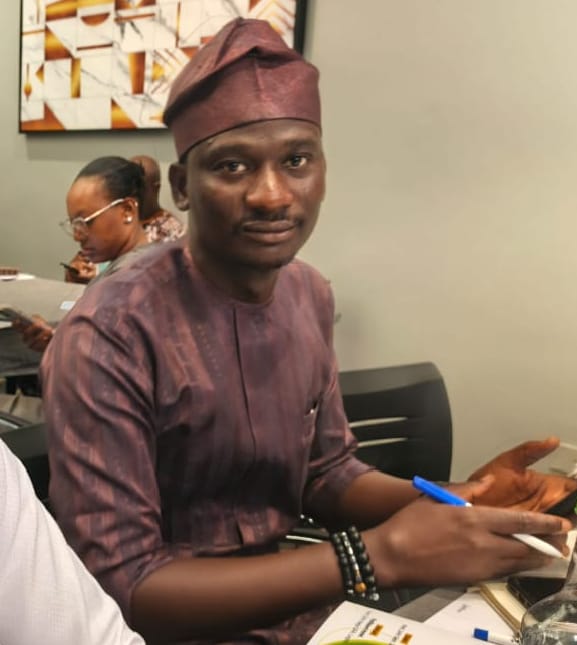National
Beyond Rhetoric: Why South-West Must Strengthen Amotekun As Insecurity Spreads Southward

BY YUSUF BABALOLA
The attack on Eruku, a Yoruba community in Kwara State, is not just another violent incident in Nigeria’s increasingly fragile security landscape. It is a stark warning to the South-West, one that must not be dismissed as an isolated breach but recognised as part of a calculated advance by jihadist networks and criminal militias long operating across Nigeria’s northern belt.
For years, Nigeria has watched insecurity migrate: from the North-East to the North-West, then into the North-Central, testing new territories, exploiting ungoverned spaces, and gradually expanding operational reach.
The Eruku attack fits squarely into this national pattern. Kwara State, particularly its boundary communities like Eruku, represents the final buffer zone before insurgents begin to test the security architecture of the South-West.
To pretend otherwise is to ignore the lessons of the past fifteen years.
Geographically and strategically, the next logical points of incursion if the North-Central continues to fall under pressure are Oyo and Osun States, both serving as the northern gateways into the South-West region.
The attack on Eruku, therefore, is not random. It is a probe, a test of resistance, and a signal of intent by armed groups who have already demonstrated their capacity to overwhelm security formations in other parts of the country.
It is against this backdrop that the recent meeting of South-West governors in Ibadan, where regional security was the central theme, becomes significant. Except for Osun State Governor Ademola Adeleke, who was represented by his deputy, all regional leaders were physically present, acknowledging the seriousness of the threat. But presence alone is not enough.
While the Ibadan meeting is commendable, what the region needs now are deliberate, urgent, and unconventional strategies. The Ogun State governor’s swift follow-up meeting with service chiefs in his state is a step in the right direction, but the region must go further than issuing communiqués and raising alarms.
The bitter truth that the region must confront is that conventional security agencies, though courageous and competent, have repeatedly shown they cannot shoulder Nigeria’s security burdens alone. Not because they lack training or motivation, but because the system itself is compromised from within.
In the last decade, Nigeria’s military and police have produced countless stories of gallantry. They have held back insurgents with limited resources, secured foreign missions, and excelled in international peacekeeping missions. Nigeria’s military earned accolades in Liberia and Sierra Leone; our police force has been praised in global operations.
Yet, at home, the insurgency persists. Why? Because saboteurs, fifth columnists, have infiltrated the very institutions designed to protect the country.
Recent incidents underscore this disturbing reality:
The killing of General Uba in Borno, where questions linger about who leaked his location to insurgents. The military has yet to provide a convincing explanation.

The shocking withdrawal of troops from a school in Maga, Kebbi State, shortly before armed groups kidnapped scores of schoolchildren. Who authorised the withdrawal? Why? No answers.
Compromised police operations, where insurgents reportedly gain access to sensitive intelligence before rescue missions even begin. These incidents point to a deep-rooted problem that has outgrown conventional narratives of funding gaps or weak logistics. They reveal internal betrayal, leaving Nigeria’s best officers exposed while emboldening jihadist groups.
This is why relying solely on federal-controlled forces is a risk the South-West cannot afford.
South-West governors, though constitutionally named Chief Security Officers of their states, lack operational control over federal security units. Commands flow from Abuja, not from state capitals. In a period of escalating security threats, this structural limitation becomes dangerous.
Fortunately, the region has already created its own shield: the Western Nigeria Security Network, codenamed Amotekun.
Unlike federal agencies, Amotekun is embedded in communities, Familiar with forest routes, border villages, and criminal hideouts, culturally and linguistically aligned with the terrain, trusted by local populations and positioned across all wards, LGAs, and local communities
But Amotekun remains underfunded, under-equipped, and politically restrained. This is the moment to change that.
The governors must expand Amotekun’s manpower, equip it with surveillance technology, patrol vehicles, and communication devices, fund its intelligence units, and formalise collaboration with hunters, forest guards, and community volunteers.
They must establish a regional rapid-response unit, strengthen cross-border intelligence with Kwara, Kogi, and Edo
The federal government’s security efforts, though ongoing, remain stretched thin across dozens of active conflict theatres.
Nigeria is too vast for central policing to succeed in all locations simultaneously. This is why the conversation on state police remains vital. But until that becomes law, the South-West must fortify what it already has.
The Eruku attack is a warning shot. Insecurity does not arrive suddenly; it creeps in gradually, testing boundaries, exploiting weak spots, and striking when unprepared.
The South-West has a chance, perhaps the last, to prevent what the North-East and North-West failed to stop early enough. The region must not wait until its communities experience mass abductions, burnt farmlands, or displaced populations before taking decisive action.
The security of the South-West cannot be outsourced. It must be owned, driven, and defended by the region itself.
Yusuf Babalola writes from Lagos.
08061620468
babalolayusufabiola@gmail.com
























